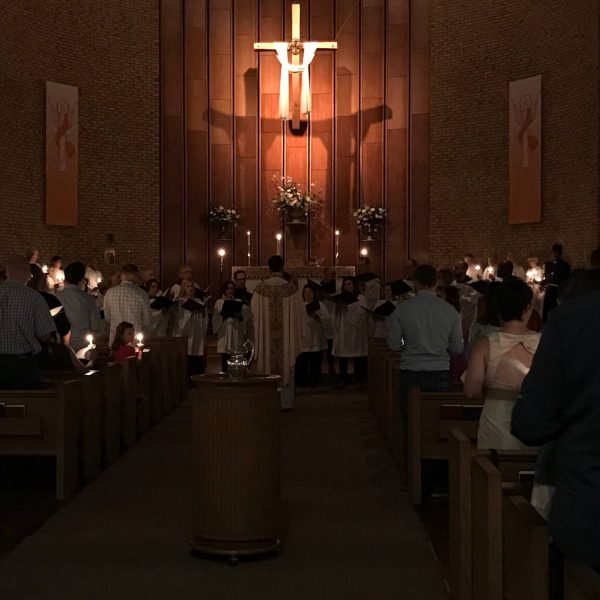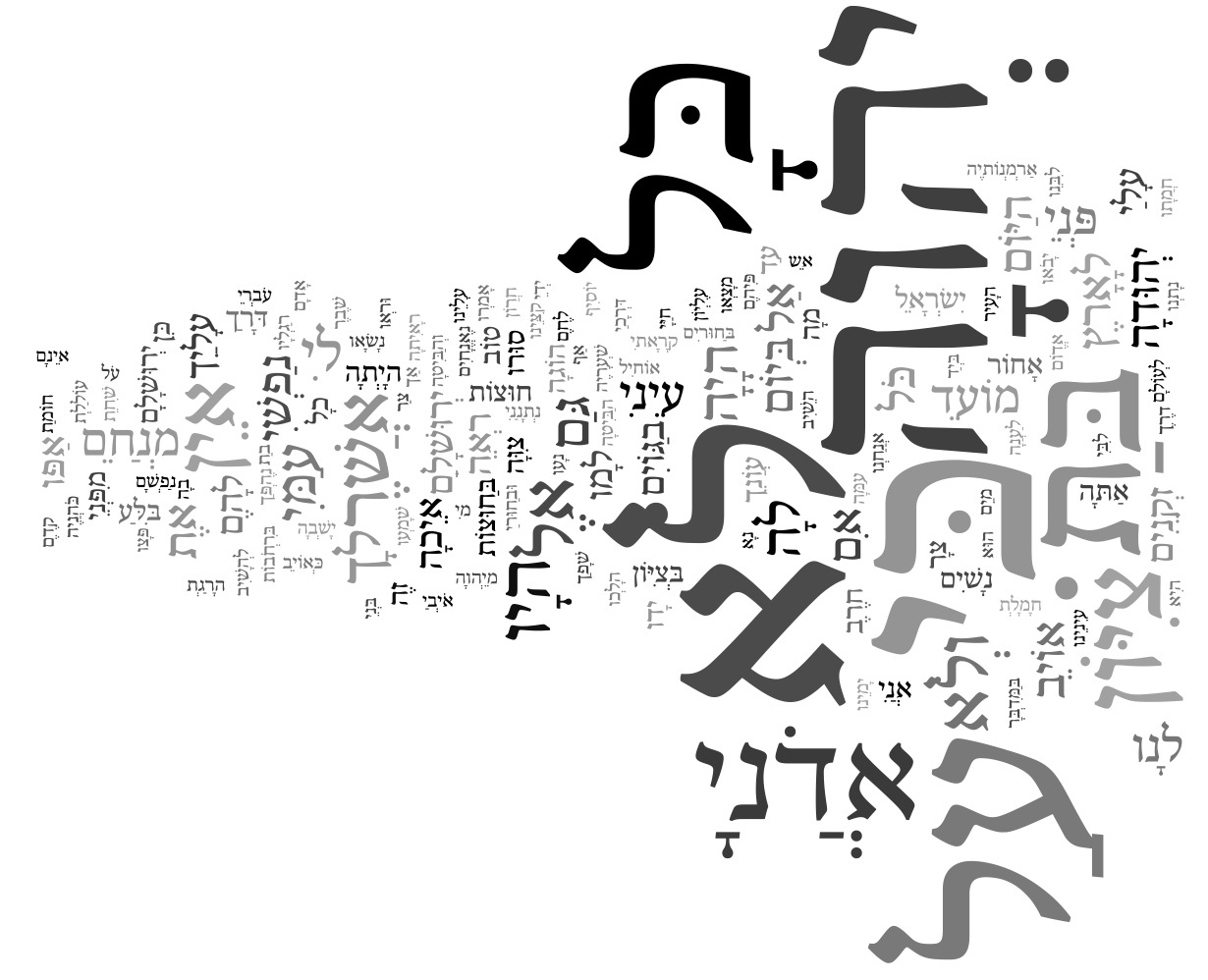The Great Vigil of Easter 2017 – St. Bartholomew’s, Nashville.
This is my homily from this year’s Great Easter Vigil. [mfn]From http://www.episcopalchurch.org/library/glossary/easter-vigil “The liturgy intended as the first (and arguably, the primary) celebration of Easter in the BCP (pp. 284-95). It is also known as the Great Vigil. The service begins in darkness, sometime between sunset on Holy Saturday and sunrise on Easter, and consists of four parts: The Service of Light (kindling of new fire, lighting the Paschal candle, the Exsultet); The Service of Lessons (readings from the Hebrew Scriptures interspersed with psalms, canticles, and prayers); Christian Initiation (Holy Baptism) or the Renewal of Baptismal Vows; and the Eucharist. Through this liturgy, the BCP recovers an ancient practice of keeping the Easter feast. Believers would gather in the hours of darkness ending at dawn on Easter to hear scripture and offer prayer. This night-long service of prayerful watching anticipated the baptisms that would come at first light and the Easter Eucharist. Easter was the primary baptismal occasion for the early church to the practical exclusion of all others. This practice linked the meanings of Christ’s dying and rising to the understanding of baptism.”[/mfn] The service is gorgeous, but long (hence a homily and not a full sermon) and since it starts after sundown it does not end until quite late. Some parishes will have the service start about an hour before dawn on Easter Sunday. Since liturgical Christian days begin at sundown it is the first Easter service and includes the resurrection narrative and the declaration that Christ is risen. The audio (which differs in some ways) will be available here.
 Exodus 14:10-15:1
Exodus 14:10-15:1- Isaiah 55:1-11
- Psalm 42
- Zephaniah 3:12-20
- Psalm 126
- Ezekiel 37:1-14
- Romans 6:3-11
- Matthew 28:1-10
When I was in college, just beginning earnestly my biblical studies as an academic, I began to question and worry about history and God’s role in it. I knew my Bible fairly well so I knew all about God’s call to Abraham, leading his people out of slavery in Egypt, his promises of return and redemption we have read in the prophets this evening, and God entering into history himself as Jesus, God made flesh , sent to teach us, guide us, and ultimately offer himself up as a sacrifice. This is what scholars call a Heilsgeschichte, the “Holy History” of God’s work of salvation in the world. But I started to think about the long span of history, the nearly two millennia it would have been from Abraham’s time to Jesus’ and the nearly two millennia from Jesus’ day down to our own and all the time in between.
Our readings tonight take us through a narrow path within Scripture, mere allusions to the predominate theme of God’s grace and love for us, his people. We can be forgiven for getting the impression that God is a divine puppet master, pulling the strings constantly to determine every last detail in life. And that can be discouraging, can’t it? Because if we view God as managing and determining ever last detail of history, then when things are going so wrong in our lives we have to ask why God is bringing all this on our heads.
Consider now all the passages we didn’t read, the reasons why Isaiah and Zephaniah and Ezekiel were sent these words from God to Israel. These are messages of encouragement and hope to people who were living in hard times. Times like our own. They felt that God was not listening to them, that God was not present. God did hear their prayers and so he sent encouragement and words of hope.
An imperfect analogy is perhaps to consider that God is the author of all history, written and unwritten. He has created the universe, framed the story and determined the narrative and…. Well, here is where the analogy breaks down because God has invited us to participate in writing our history. History is “crowdsourced,” if you will. God allows us to write the chapters and verses within the full narrative that he has already determined. At times he is the editor, stepping in now and again to provide a key element that ensures the culmination and fulfillment of our story. God remains sovereign, he remains in control of history, yet he allows and invites us as co-authors.
This follows from the fact that we are created in the image of God. Since God is the Creator of all, the author of all history, then we, being made in his image, also have this creative and authorial ability. As it says in our Catechism, being created in the image of God means, “we are free to make choices: to love, to create, to reason, and to live in harmony with creation and with God” (BCP, p. 845).
So we are full participants in our history, writing day by day new lines of dialogue and character development, shaping the environment and setting of the story. The Kinard family have added beautiful little Jones into our story and tonight he will be baptized, opening yet another chapter, another narrative. Yet, time and again we, we Israel, we the church, have also written long winding narratives in which we become our own heroes only to find that we are often the villains. Time and again God reenters the story, with the editor’s deft touch to redirect, to bring us back to the primary themes of his story. Because our story is his story.
This is what our readings tonight, this Holy History tell us: The God has not forgotten his people and that he remains attentive and the author of the story. When the narrative had developed fully enough, when humanity was ready, he entered into the story himself and revealed in broad, sweeping, and beautiful imagery the conclusion of the story.
Yesterday Father Travis described the crucifixion and the resurrection as the hinge of history, because upon these historic and historical events everything changed. We remain a vital and critical part of the narrative, you are a central character to God’s unfolding story. You and I are also co-authors. Jesus, the Savior of the world, has invited us to help shape the history of the world. Through his death and resurrection, Jesus has revealed to us not only the triumphant conclusion, but he has also liberated us to write the most beautiful story.
Rom. 6:6 We know that our old self was crucified with him so that the body of sin might be destroyed, and we might no longer be enslaved to sin. 7 For whoever has died is freed from sin. 8 But if we have died with Christ, we believe that we will also live with him.
God is Sovereign, the Great Creator, the Redeemer of the World, and the Author of Life. He invites you to write your portion of the narrative, freed from sin and guided by the Holy Spirit, confident in the knowledge and truth that Jesus has written and completed that final chapter, lifting us up out of death and into eternal life.
Amen. ✠




